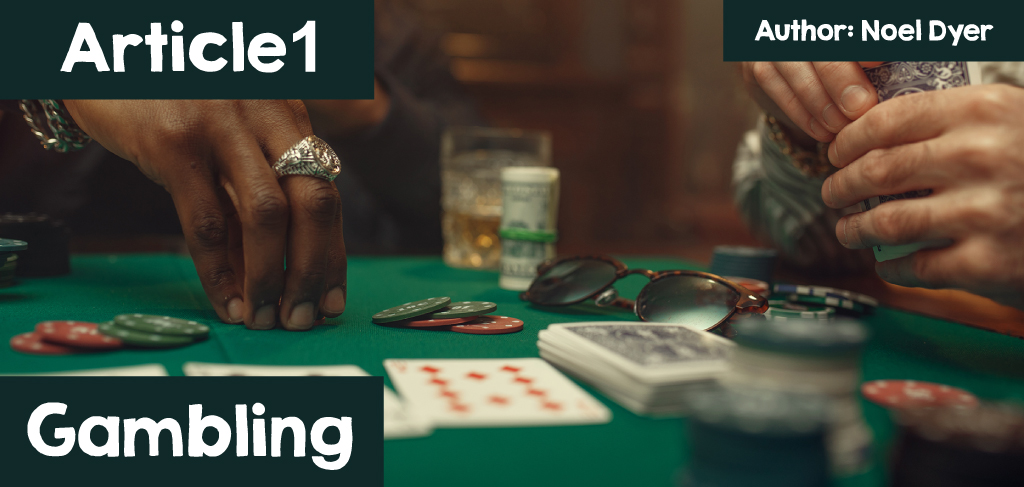Gambling
Definition: The meaning of gambling is to take part in a game or an activity where a person ventures money or property in the hopes of earning money.
 |
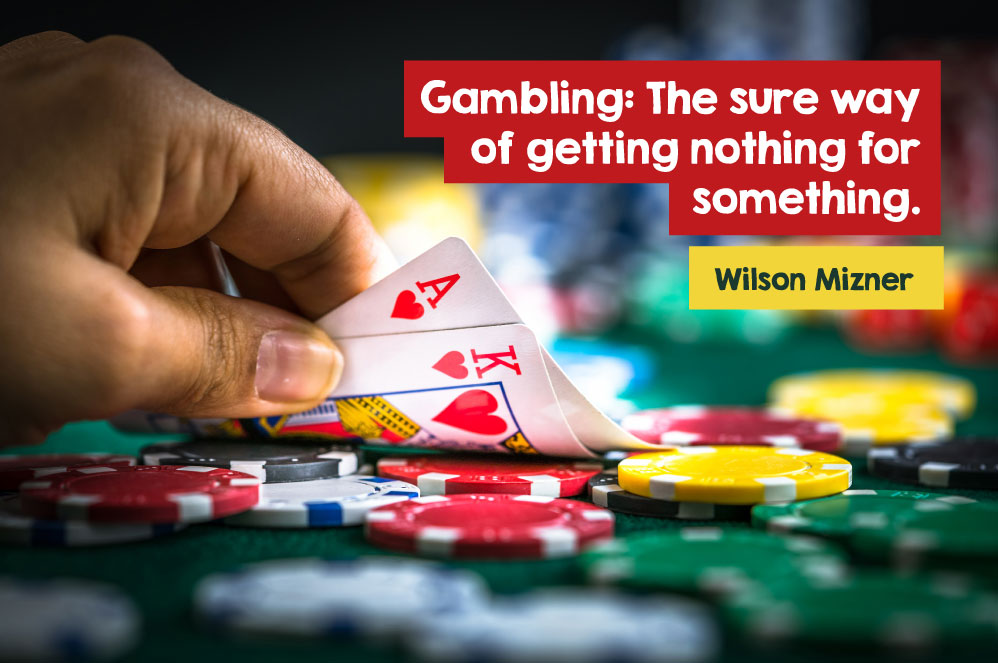 |
In the past, the opportunity to gamble was fairly limited. Going into a betting shop on the high street, find a casino (places that were very rare in Wales) or meet a circle of friends to play specific card games. People would also buy some raffle tickets or risk a few innocent pennies at the fair or a social event. Then the habit of buying a lottery ticket became popular.
By now, things have completely changed. Opportunities to gamble are around us everywhere. In the local shop, it is possible to buy not only lottery tickets, but a range of scratch cards too. Access to the Internet offers endless opportunities for gambling and this is now as simple as unlocking a mobile phone. Although you need to be 18 years old to gamble, it is hard to implement the rule on the Internet and phone.
Look at the following pictures:
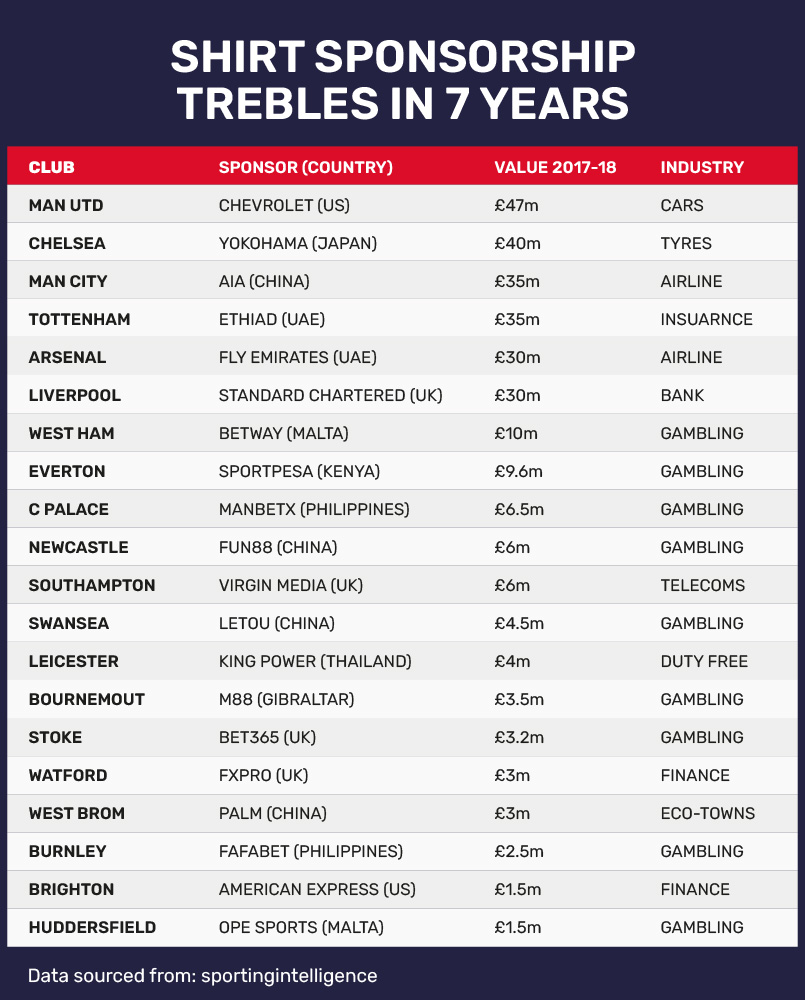

Image from Skysports.com
As seen in the pictures, gambling adverts are around us everywhere, especially in the sporting world. This creates an idea that it is impossible to enjoy sports without having a bet on the result. Many of these specific adverts target young men. Children grow up wearing sport shirts that advertise gambling companies. Similarly, adverts on the television, in cinemas, on the phone and advertising posters everywhere promotes gambling companies. Somehow gambling has been largely normalised.
 |
Surprisingly, the spending on official gambling by people from the home nations in a year is almost 10 billion pounds. This is the highest in the world. It is higher than the United States of America (although the population there is much higher), thirdly is Australia, then Italy and France. At first glance, this is an important industry. It brings jobs and money in taxes to the government and gives people enjoyment.
On the other hand, it leads to major problems. Many become addicted to gambling and people go into debts. Families can suffer substantially because of lack of money. Suicide is one result of the hopelessness that results from addiction and debts. In 2018, 0.9% of all respondents were classified as moderate-risk gamblers and a further 2.0% as low-risk gamblers. Population estimates show that in Wales, approximately 18,000 people are problem gamblers, 24,000 are moderate-risk gamblers (GamblingComission, n.d.).
The health and well-being services have to spend a lot of money on counselling and dealing with the consequences. There is a lot of mention about the cost of alcohol and drugs misuse and obesity on the health service – there is a risk that the consequences of gambling addiction adds to these problems. The NHS has already opened several clinics to deal with gambling problems! The estimated cost to Welsh public services from problem gambling is between £40 and £70 million. There are also concerns that technological advances, such as the growth of online and mobile platforms, have exposed increasing numbers of people to the risks of gambling related harm.
There is also a charity called Gamblers Anonymous that hosts meetings in Cardiff, Pontypridd and other locations in Wales and beyond. As a result, there’s been some recent steps to try and decrease the influence of the gambling business e.g., ban gambling companies’ adverts on football players’ shirts. Within Senedd Cymru in Cardiff, a group of members is discussing methods of dealing with gambling problems. Many religions and faiths have established discussion groups and methods to deal with the matter.
The Christian Perspective

Years ago, hosting a raffle in a church or chapel was a controversial subject with some Christians viewing it as unnecessary gambling. Many also opposed to establishing the National Lottery in 1994, viewing it as a step towards making gambling acceptable. The Methodist Church has a long-established concern about gambling, particularly when it is seen as a way of gaining money at others' expense, and for the victims of gambling. John Wesley, the founder of Methodism, described gambling as a means of gain inconsistent with love of neighbour.
Why these negative feelings towards every type of gambling then?
The starting point in understanding Christianity’s opinion comes from some of the Bible’s words. It warns people from believing that collecting riches is life’s purpose:
‘Those who want to get rich fall into temptation and a trap and into many foolish and harmful desires that plunge people into ruin and destruction. For the love of money is a root of all kind of evil.’ (I Timothy 6:9-10) On the other hand, the Bible does not ban gambling or call it a sin. What Christians do is consider whether gambling is beneficial to people or if it causes damage to people.
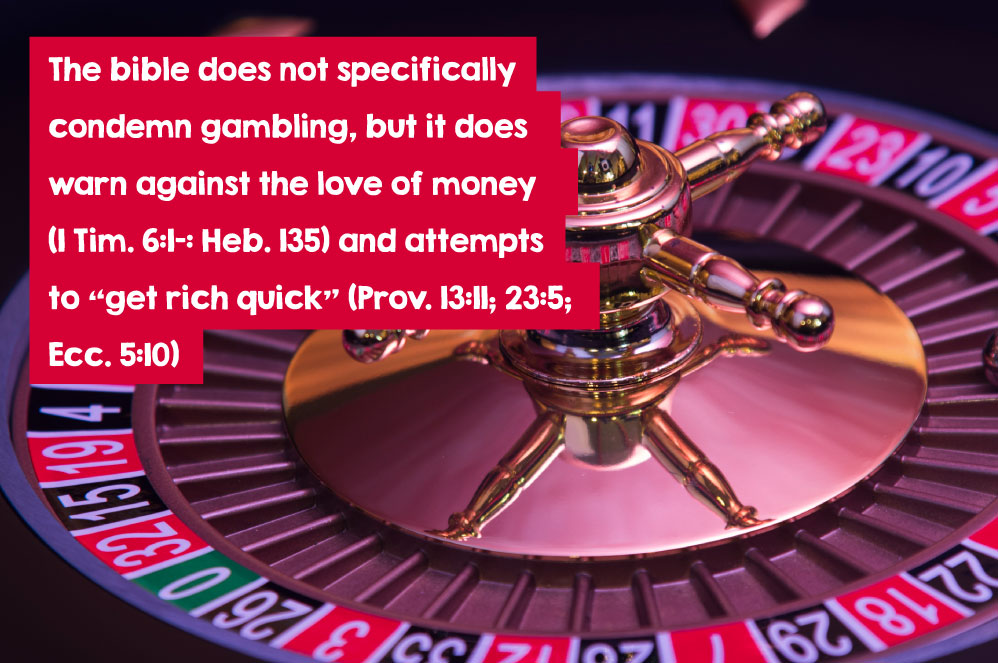 |
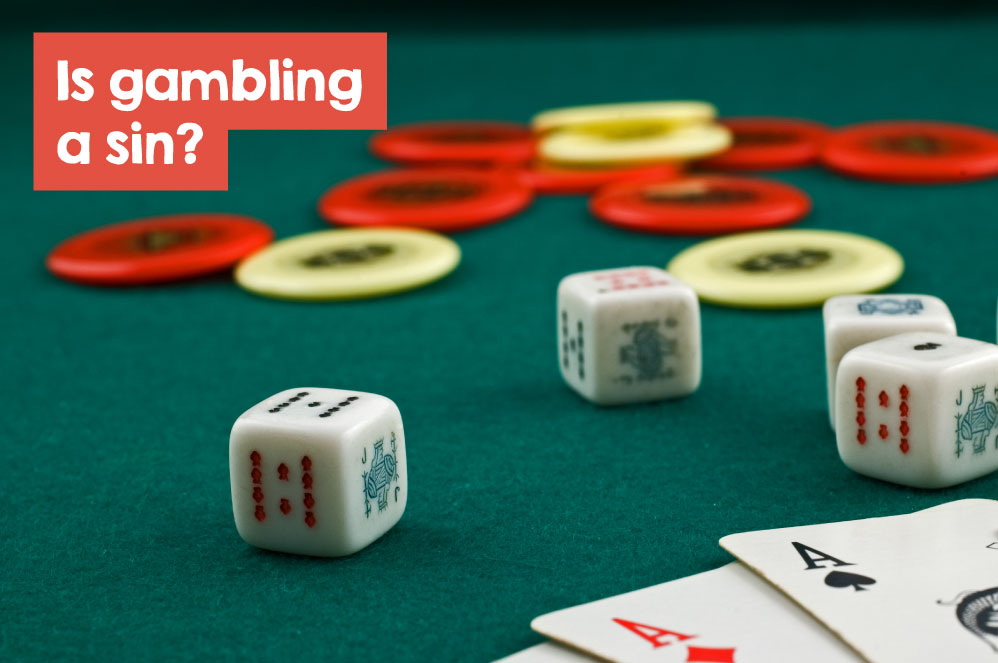 |
Here are some of the points that some Christians would use when assessing gambling:
- Gambling appeals to people’s greed and according to the Gospel of Mathew ‘You cannot be a servant of God and of money at the same time’.
- Any winnings by gambling at the expense of other people is a loss. This is entirely contrary to the Christian idea of thinking about others’ well-being.
- Gambling is contrary to the idea that reward comes as a result of work. Gambling promotes the idea that something is available without effort and can lead to laziness.
- Gambling is a way of escaping from life’s realities whilst completely depending on luck when, in reality, the only ones that will definitely succeed are the gambling companies.
- Evidence shows that the poor suffers the most because of the bad consequences of gambling. It is unfair to take advantage of the poorest in society.
- Gambling, like alcohol and drugs, is addictive. It leads to people losing control of their lives and those consequences can be very costly and serious.
Despite all these points, Christian attitudes varies nowadays and has adapted over the year as the attitudes of society has changed. The majority would acknowledge the many risks of gambling. On the other hand, there are some innocent elements and a lot of the money made through some means of gambling e.g., the National Lottery, local bonus ball, raffles etc. raises a lot of money towards good causes. When a lottery ticket is bought support is given to people, communities and infrastructure which enable sport in Wales to thrive. Thanks to National Lottery players, £30 million is raised every week for good causes.
The Jewish Perspective
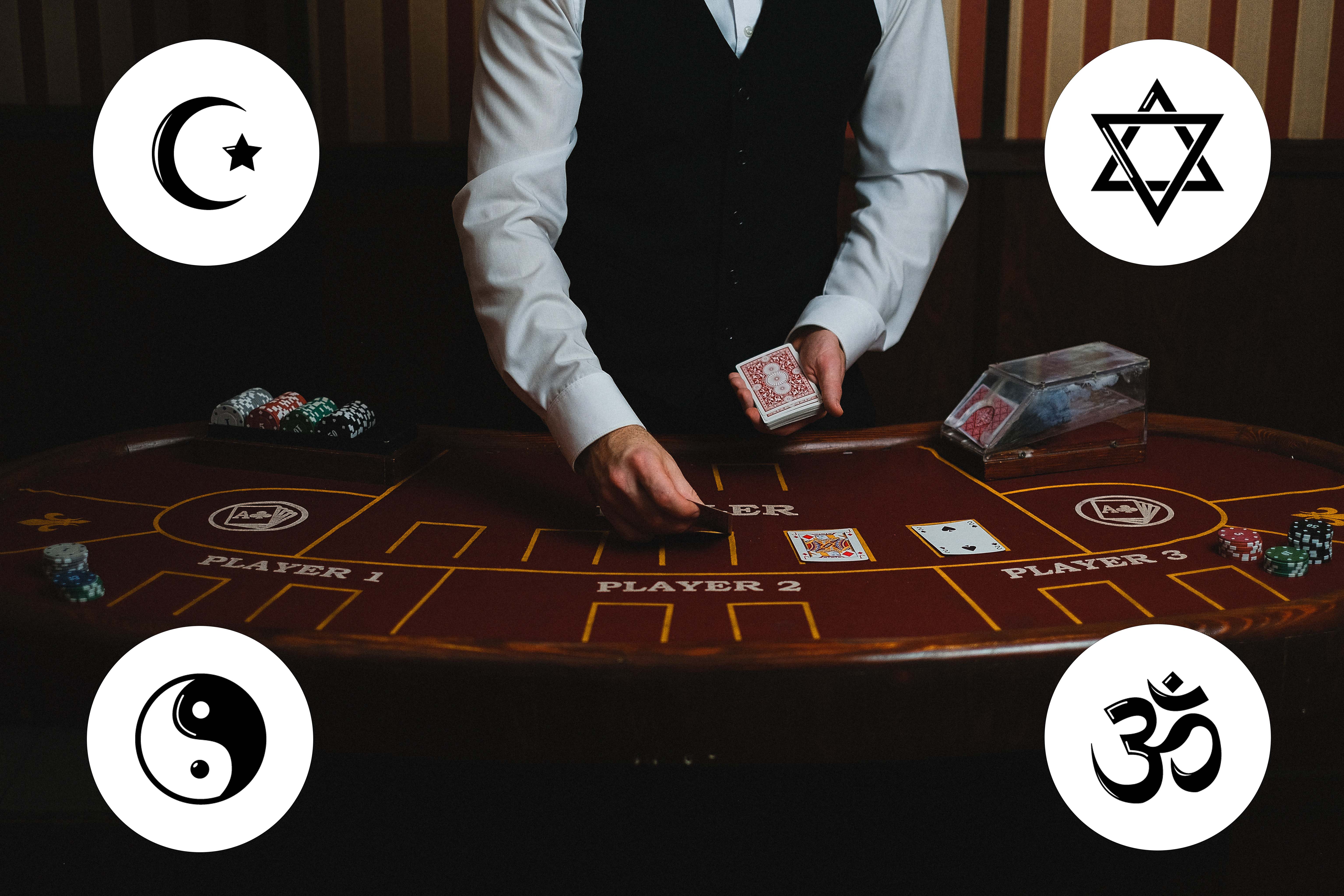 |
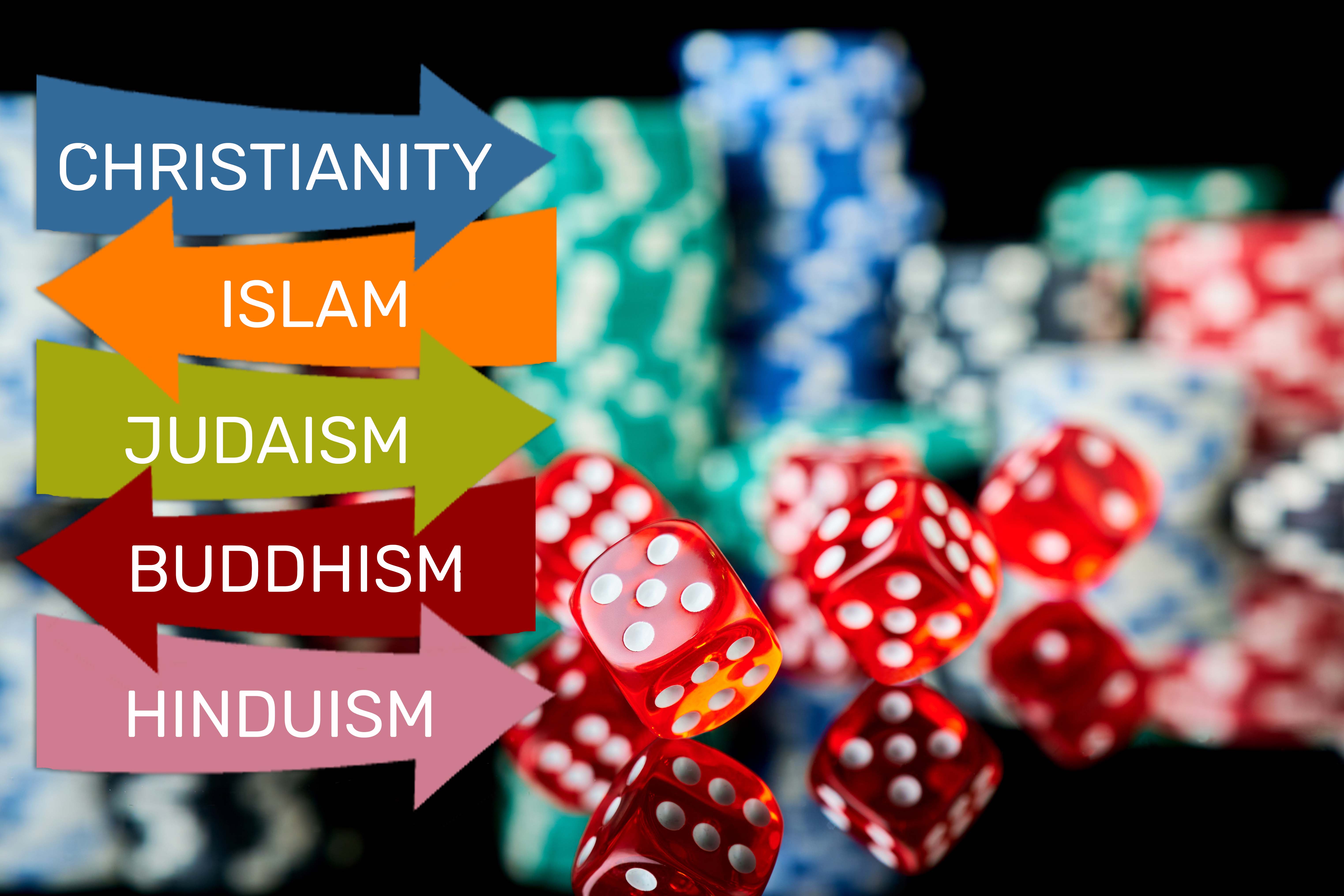 |
Judaism is critical of gambling, but it is not completely prohibited in the Torah. Similarly, a negative attitude is seen towards gambling in the Talmud. The strongest words are to be found in the Mishnah which states that someone who “plays with dice” is barred from serving as a witness. There is a dispute, however, about the particulars of this prohibition (My Jewish Learning, 2025). Some Jews would accept hosting raffles, lottery etc. to help good causes and to maintain the synagogue whilst they would condemn betting and various gambling to benefit in a selfish way. In the past, the ones who gambled excessively were described as the bad ones who harmed family life by turning their backs on God.
Elements of gambling have been a part of Jewish life over the years. A Jewish family who settled in Cardiff set up a weekly football pools which were a regular feature in many working-class homes as it was not looked upon as "gambling". Harry and Abe had their ups and downs and the Shermans ultimately became one of the biggest pools companies in the country and one of the largest employers in Cardiff. Eventually the family put their wealth to good use both at home and abroad creating the Sherman Foundation Trust Fund for charitable and educational purposes. The most obvious benefit to the city of Cardiff was their donation of £180,000 to the University towards the building of the Sherman Theatre in 1973. They also donated £20,000 to the Cardiff headquarters of the Royal College of Nursing (Jewish History Association of South Wales, 2025).
In the past, special permission was given during some holidays and celebrations. On the other hand, the risks were seen and problems arose. The Jews, like others, had to warn against gambling due to the unfortunate consequences – poverty, debt, addiction, harming the family, despair and even suicide. Some Jewish communities were seen establishing groups to help fellow Jews deal with these problems. In conclusion it can be argued that gambling like many other pastimes can have both positive and negative results.


